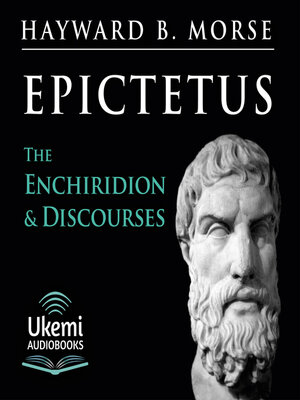
Sign up to save your library
With an OverDrive account, you can save your favorite libraries for at-a-glance information about availability. Find out more about OverDrive accounts.
Find this title in Libby, the library reading app by OverDrive.



Search for a digital library with this title
Title found at these libraries:
| Library Name | Distance |
|---|---|
| Loading... |
The Enchiridion is the famous manual of ethical advice given in the second century by the Stoic philosopher Epictetus.
Born to a Greek slave, Epictetus grew up in the environment of the Roman Empire and, having been released from bonds of slavery, became a Stoic in the tradition of its originators, Zeno (third Century BCE) and Seneca (first century CE).
Epictetus didn't leave a formal written legacy, but his pupil, Arrian, collected his teachings, and posterity now has The Enchiridion and The Discourses. The first is a short compilation of Stoical precepts - how to live an ethical life. It is essentially about everyday life, and it maintained its popularity throughout the succeeding centuries, on par with the other principal concise Stoic document from the Roman period, Meditations by Marcus Aurelius - who had clearly read it.
The Enchiridion is presented here as the translation by Thomas W. Higginson. The Discourses, a much longer text again compiled by Arrian, contains a more comprehensive view of the teachings of Epictetus. The Discourses is translated by George Long.
Born to a Greek slave, Epictetus grew up in the environment of the Roman Empire and, having been released from bonds of slavery, became a Stoic in the tradition of its originators, Zeno (third Century BCE) and Seneca (first century CE).
Epictetus didn't leave a formal written legacy, but his pupil, Arrian, collected his teachings, and posterity now has The Enchiridion and The Discourses. The first is a short compilation of Stoical precepts - how to live an ethical life. It is essentially about everyday life, and it maintained its popularity throughout the succeeding centuries, on par with the other principal concise Stoic document from the Roman period, Meditations by Marcus Aurelius - who had clearly read it.
The Enchiridion is presented here as the translation by Thomas W. Higginson. The Discourses, a much longer text again compiled by Arrian, contains a more comprehensive view of the teachings of Epictetus. The Discourses is translated by George Long.







